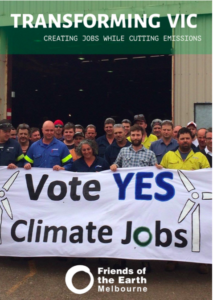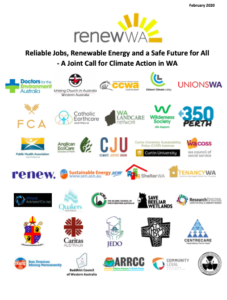The COVID-19 crisis is the result of an economic system that prioritises profits over peoples’ rights and the environment.
 The systemic, inter-related socio-ecological crises we face — climate, biodiversity, food, water, economic and care — and this global coronavirus pandemic share the same root causes: a capitalist, patriarchal and racist system designed for capital accumulation and neoliberal, corporate-led globalisation.
The systemic, inter-related socio-ecological crises we face — climate, biodiversity, food, water, economic and care — and this global coronavirus pandemic share the same root causes: a capitalist, patriarchal and racist system designed for capital accumulation and neoliberal, corporate-led globalisation.
This is why Friends of the Earth International believes that a “just recovery” built on environmental, social, gender and economic justice is urgently needed to comprehensively address the impacts of the COVID-19 crisis.
Recovery does not mean going “back to normal”. This is the time to prioritise the sustainability of life, peoples’ rights, and the protection of livelihoods and the planet.
We propose four principles for a just recovery:
1. Abandon neoliberalism and austerity and immediately put in place policies and measures founded on justice, recognising ecological limits.
The State must play a fundamental role in guaranteeing peoples’ rights and environmental justice.
Public recovery packages must:
- Support people directly, first of all indigenous peoples, black and afro-descendant communities, people of colour, migrants, women at the grassroots, and the working class.
- Include policies for the redistribution of wealth, women’s autonomy, tax justice, and specific support for small businesses, as well as pathways away from extractive industries and fossil fuel dependence, including support for workers to transition to new jobs.
- Not pay for corporate financial loss with public money or bailout transnational corporations, especially those most responsible for systemic crises such as fossil fuel and mining companies, agribusiness, airlines and companies based in tax havens.
Governments must:
- Stop harmful trade and investment negotiations, particularly Investor State Dispute Settlement (ISDS) cases.
- Commit to an international legally binding treaty on transnational corporations with respect to human rights.
- Undo neoliberal reforms that have dismantled working class rights, for example by reversing the privatisation of social security by financial capital.
2. Recovery measures should be built on and enhance multilateral co-operation and internationalist solidarity.
Internationalism across movements and borders will help to build collective responses to this crisis. Internationalism means a common understanding and analysis of all forms of oppression, their interconnectedness as well as the need to tackle them all, globally.
International regulations must prioritise peoples’ rights and environmental, social, gender and economic justice. Countries must create policy space in which to address the root causes of the systemic crises. This means:
- All Global South debt must be cancelled, and the principle of climate reparations and ecological debt applied. The Global North and international financial institutions must provide new public finance for the Global South, in the form of non-refundable grants.
- Governments must work together to regulate the financial sector, prevent speculation, and stop financial and capital flows from Global South to North.
- Any treatment including vaccinations for COVID-19 must be made available to all under the same conditions, without patents or other Intellectual Property Rights.
- The primacy of human rights and peoples’ rights over trade and investment agreements must be enshrined in international law.
- Economic blockades and occupations that clearly violate international humanitarian and human rights law (such as in Cuba, Palestine and Venezuela) must cease.
3. Strengthen democracy and protect human rights and peoples’ rights.
Democracy must be defended and strengthened through empowering peoples’ participation. Politics must be reclaimed, by demanding that it ensures peoples’ rights and the protection of nature. We must come together to ensure:
- The health crisis does not serve as a cover for advancing big polluters’ and neoliberal corporate agendas, including further deregulation.
- Peoples’ rights are protected at all costs, including the right to voice opposition, raise criticism, and protest. The criminalisation of social movements, organisations and communities must end.
- An end to the erosion of women’s autonomy and rights over their lives and bodies is stopped.
- An end to right wing and oppressive governments and their use of the covid crisis to increase militarisation of societies and territories and impose surveillance tactics and techniques.
- The right to freedom from violence is fulfilled, especially for women, black and afro-descendant communities and people of colour, LGBTQ people, and defenders of territories.
4. Governments must respond to the multiple systemic crises—of the pandemic, inequality, climate, food, biodiversity, and care—and their root causes, by pursuing a transformative system change agenda.
The COVID-19 crisis has exposed how the destruction of ecosystems facilitates the spread of pathogens that affect our health. A just and healthy recovery means responding to the climate change crisis and the loss of biodiversity, forests and other ecosystems worldwide.
This means:
- The collective rights of peoples must be recognised, implemented and respected, in order to maintain their age-old practices of collective management of territories.
- A complete transformation of the food system away from industrial agriculture towards food sovereignty. Support for peasant, family and artisanal producers, building up national and local food supplies, and shifting public policies and subsidies away from corporate farming towards agroecology. Genuine agrarian reform, that gives peoples ownership and control over their seeds, land, water, knowledge.
- Responding to the COVID-19 and climate crises simultaneously, applying the principle of common but differentiated responsibilities to move away from fossil fuel dependency to 100% community-owned, renewable energy for all.
- Building a new economy that is distributive and healthy by design, where transport, communications, housing, water and sanitation, education, health, care work, energy and social security are recognised as rights and are available for all through public services funded through just taxation. A transformed system will be based on sustainable local and regional economies linked together through equitable trade relations.
We call for the following principles to be the basis for all national/regional decisions around bailouts, tax concessions, regulatory frameworks and public spending, and all the necessary international/multilateral measures intended to see us through a recovery from COVID-19 and the ensuing socio-economic crisis into sustainable and just societies founded on peoples’ sovereignty and participation.
Read the full Principles for a Just Recovery report here


 and Philippa Rowland,
and Philippa Rowland,